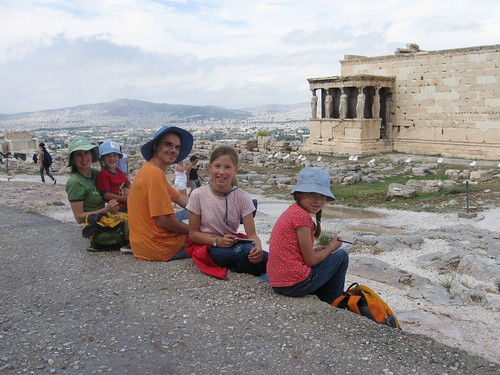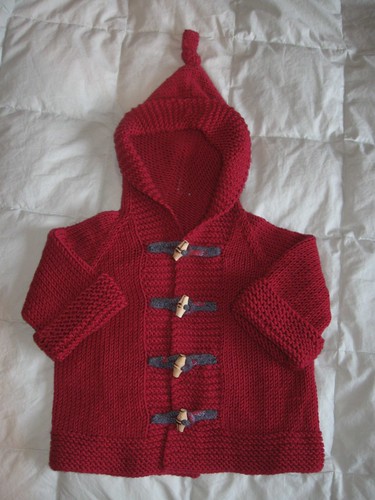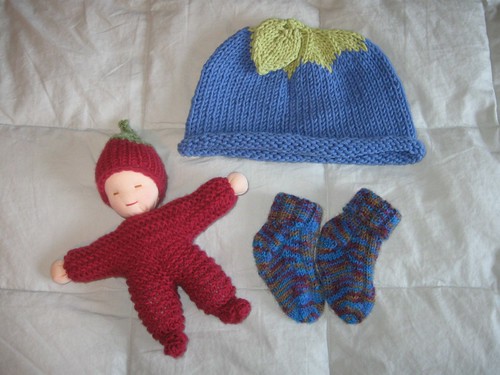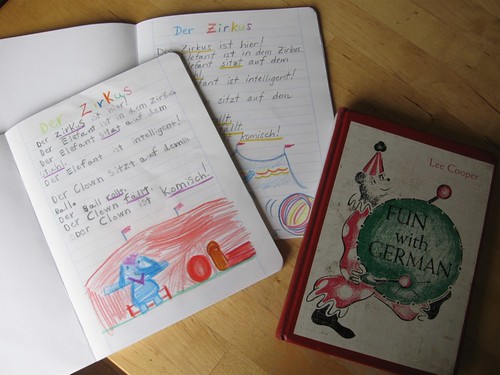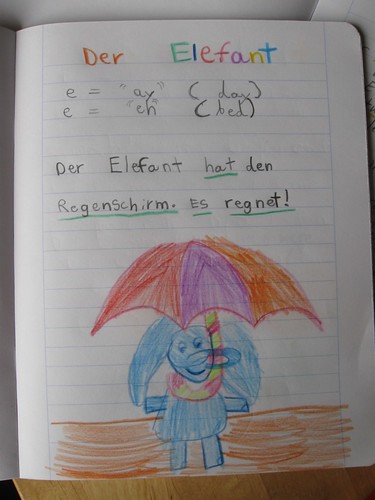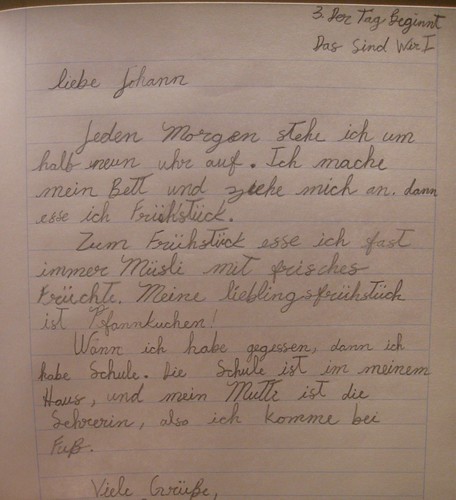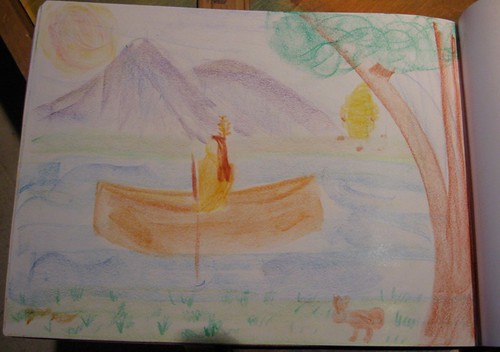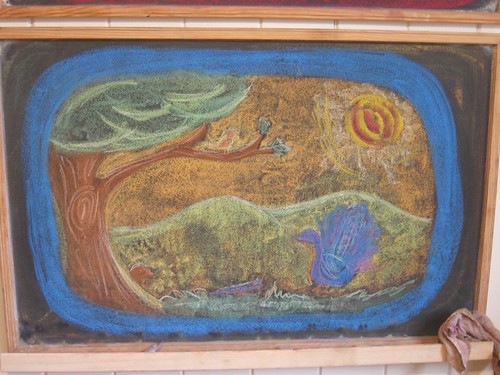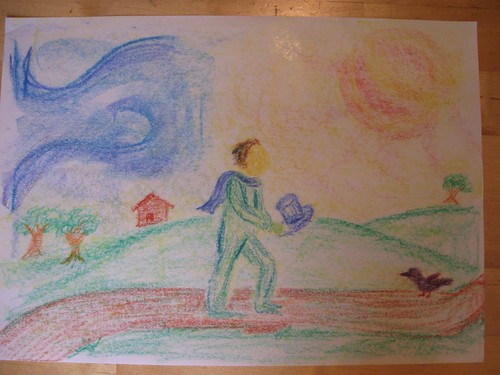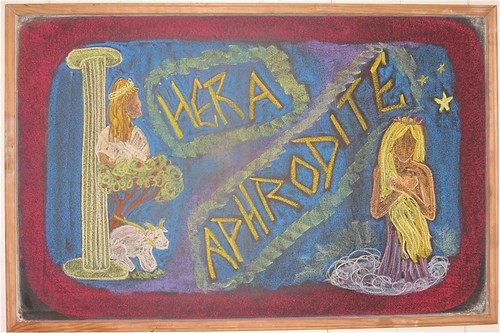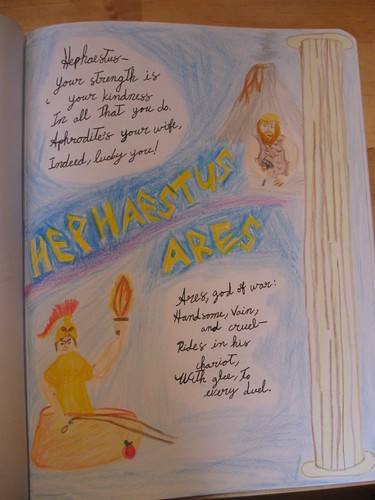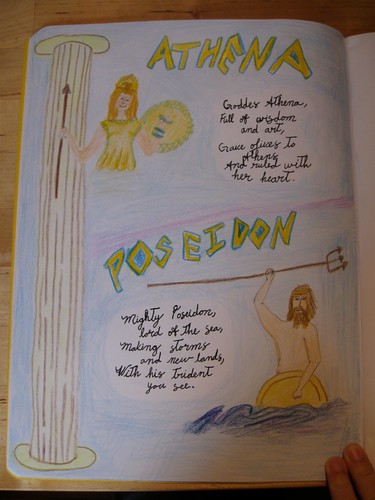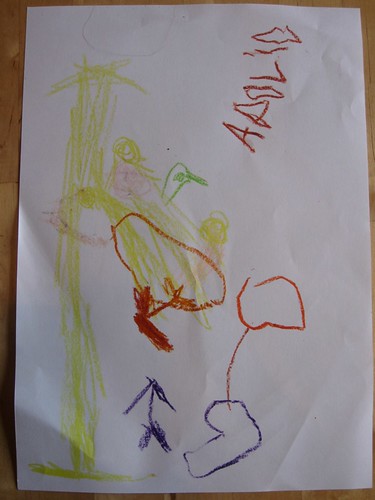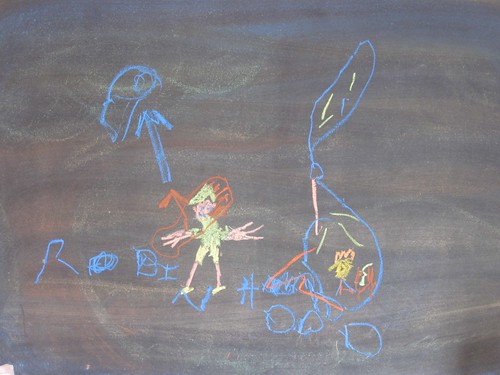
Today I found myself acting out a wild story about a boy who wanted to make a birthday cake for his friend, with candles, but he didn't know how old she was. He called her on the phone, but it was a bad connection. So he mailed her a letter, but he forgot to use a stamp. Then he decided to go ring her doorbell, but the doorbell was broken. So he knocked... nothing. Then he began pounding and banging on the door, but no one heard because the mother was running the vacuum cleaner.
Imagine, I'm standing there banging furiously on the dining room door with one hand while with the other I am running the vacuum cleaner and pretending not to hear. Meanwhile my kids are calling out suggestions, laughing and smiling, and completely engaged. They love it so much, and I'm so pleased-- because we're actually, at this moment, homeschooling. And what I'm presenting is their German lesson.
The funny thing is, I don't speak German. Not really. I took it in college, but outside of class, I didn't use it. Not once. And if you don't use it... well, in twenty years time it just seems to float away on the breeze. It's not the most useful language you can learn as an American living in the Southwestern US. Spanish would have been a more obvious choice, and I probably would have stayed that course had my friend and I not met these cute Austrian brothers at the opera. The college crush, both blind and fleeting-- it was as good a reason as any to learn a language. Even if I never used it again... and I didn't. Not until I decided to teach it to my kids, and then I had to start over, from scratch.
When we lived in the US and my girls were younger, I used songs and games and very basic attempts at language introduction. For resources I googled fingerplays and checked out picture books and cds from the library. I sang them songs and made up silly little games. My goal was not to create fluent speakers. I simply wanted them to play with the idea of language-- hear new sounds and try to make them. If they learned a few words and had fun doing it, then that was a bonus.
And then we moved to Switzerland, and my focus changed. For the first year we honestly didn't even need German. Hardly anyone spoke to us in the city, and so our language usage was pretty much confined to asking for a bathroom and reading ingredient labels on food packaging. Now that we've been living "auf dem Land" for the last year, learning the language has become somewhat of a necessity.
It's hard teaching a language when you don't speak it fluently yourself. We've tried just about everything-- Rosetta Stone, books, cds, random internet resources... The materials I've found just aren't enlivened enough. So I decided to make my own. I've started putting together a few ideas from here and there, including psychology research on language acquisition, and the girls can't get enough of these lessons. They love them. They beg for them. And it makes me so happy.
And just in the last few weeks that I have been implementing this, I have seen a HUGE change in the girls' language abilities. And in my own. I'm far from fluent-- but I think we're definitely onto something VERY good here. Even the neighbors have been commenting to me about how well the girls are speaking lately, and I couldn't be more encouraged by this. It's astounding, really. Every day they come in from playing to tell me excitedly that they understood something someone said, or said something that was understood. They are starting to feel empowered again. Imagine that! It makes me cry, really.
Basically, I'm telling very short, simple, thematic stories twice a week. I have two characters, Johann and Julia, and the stories revolve around their comical interactions with each other.
My rules for the stories are:
- I have to tell the whole story in German (as best as I can).
- It has to build on words they already know.
- The words have to be contextually connected and useful.
- It has to be simple.
- It has to be funny.
So I tell the story, acting out bits and drawing pictures and words on the chalkboard as I go (usually with a dictionary in my lap), and then the girls and I draw the picture together on paper, purposefully making it as ridiculous as possible. We discuss which words to write-- we only pick a few (less really is more), and I make sure to include verbs. I label my paper, Sunburst copies the words from my paper, and then I help Moonshine label hers.
We've been doing two stories per week, on Monday and Wednesday, and then on Friday the girls are required to put on a very short play for me from the week's lessons. They love this. Plus it gives them a reason to review the work and practice using the language in context and without judgment. Nothing kills the joy of learning a language like judgment. So we don't do that. We just try, together. We keep it fun and silly, and we make complete fools of ourselves. Learning a language requires that above all else-- the courage to look/sound stupid.
Here are some of our pages. Like I said, my stories are pretty ridiculous. I'm sharing all three versions (mine, Sunburst's, and Moonshine's) because I can't choose between them. Anyway, when we feel like we have enough pages we'll bind them together in a book, along with some other (not so exciting) pages we made last year.
Basic greetings, including Swiss and the triple Swiss kiss:
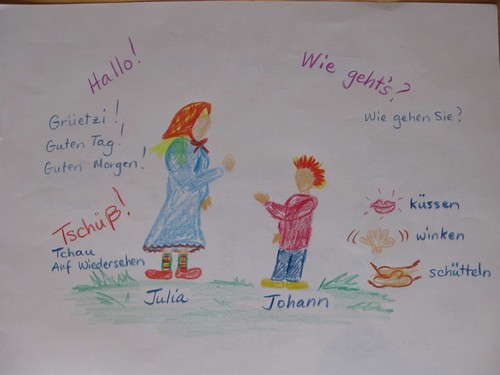


At the Swimming Pool:
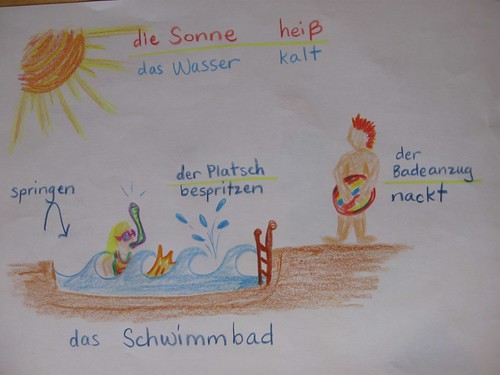


A (very strange) Race-- this tied in nicely with a our
week of lions:

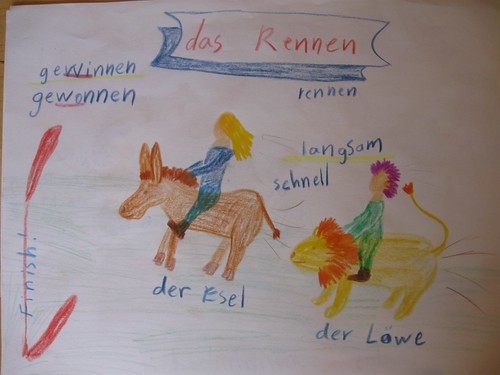
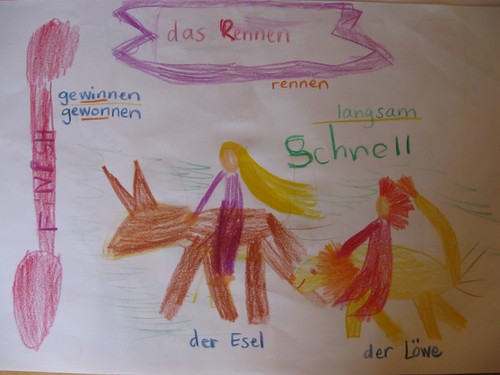
Cooking with the Baker:
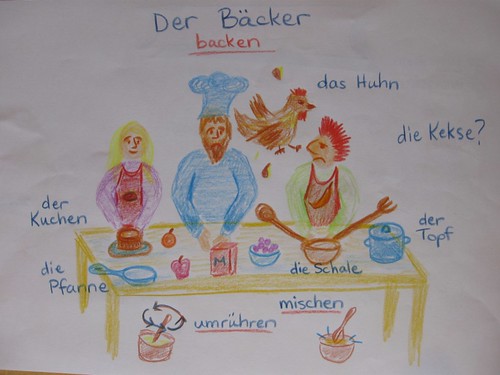

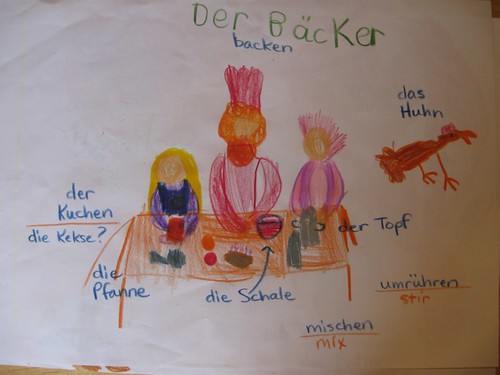
Feeding Chickens:


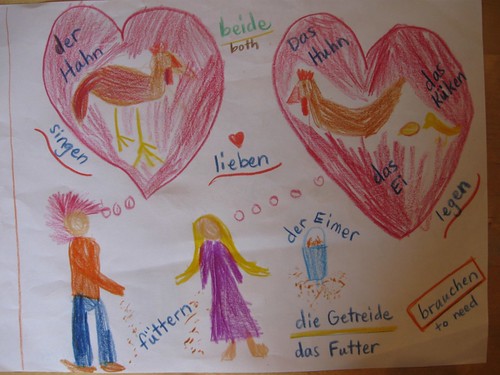
Bird Party (tied in with bird fables):


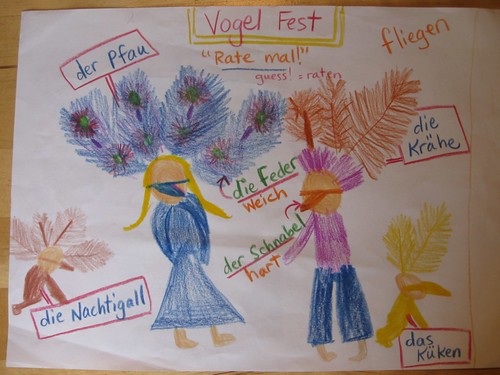
These lessons are the heart and soul of our language learning. And they're working. We're really starting to speak and understand German!
We're also doing some fun book work with the language to work on our reading skills-- but I'll have to share that tomorrow.



